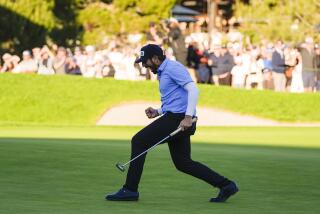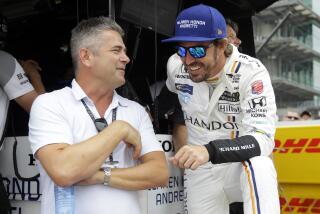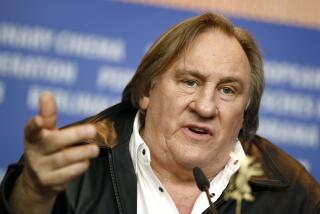Laurent Fignon dies at 50; two-time Tour de France champion
Laurent Fignon, the Frenchman who won the Tour de France in 1983 and 1984 and lost to American Greg LeMond in 1989 in the race’s closest finish, has died of cancer. He was 50.
Fignon died Tuesday, the French cycling federation announced. Fignon said in June 2009 that he had an advanced cancer of the digestive system and was undergoing chemotherapy.
He had been a television commentator in France since 2006. He worked through this year’s Tour, his voice gravelly from his illness and treatment.
“Fignon was a great person, true to himself,” LeMond told French television. “We were competitors but we were friends.... He had a very, very big talent, much more than anyone recognized.”
Seven-time Tour champion Lance Armstrong, a cancer survivor, called Fignon a “dear friend” and a “legendary cyclist.”
In 1989, Fignon had a 50-second lead that appeared decisive with only the last day’s time trial remaining in the 21-stage race. The two dogged each other for weeks, the leader’s yellow jersey passing back and forth.
But LeMond, riding with an aerodynamic helmet and new triathlon handlebars that Fignon maintained were illegal, set a blistering pace on the final day. At the time, it was the fastest full-length time-trial stage ever ridden.
Fignon rode last, his ponytail blowing in the wind, collapsing to the ground after finishing. LeMond took the Tour by eight seconds, the smallest margin of victory.
“For the first time in my career, I cried,” Fignon told The Times. “It doesn’t matter if it was eight, 10, 20 or 30 seconds. I lost the yellow jersey.”
Tour director Christian Prudhomme said Fignon’s defeat was steeped in cycling legend.
“I remember that lost look in his eyes on the finish line at the Champs-Elysees, which contrasted with Greg LeMond’s indescribable joy,” Prudhomme told the Associated Press.
In Fignon’s autobiography, “We Were Young and Carefree,” which was published last year, he admitted to doping, describing drug-taking in the 1980s as widespread. He said it was recreational rather than performance-enhancing — aided by the strong Colombian involvement in cycling at the time and accompanied by large quantities of cocaine.
He said doping in cycling was revolutionized by the arrival of the growth hormone EPO in the early 1990s. Fignon said he refused to take it and retired in 1993 when he realized that mediocre riders were keeping up with him.
Born April 12, 1960, Fignon competed in races while completing his army service before being signed to the Renault team.
Fignon won the Tour on his first attempt in 1983 in just his second year as a professional, seizing the opportunity presented by the absence of injured four-time winner Bernard Hinault.
They went head-to-head the next year. Fignon captured five stages of the Tour and finished more than 10 minutes ahead of Hinault.
“He was a fighter, and like me, was always vying for victory. We always had fair battles,” Hinault said. “He fought this disease, too, but lost the battle.”
Fignon is survived by his wife, Valerie, and a son from a previous marriage.
news.obits@latimes.com
More to Read
Start your day right
Sign up for Essential California for the L.A. Times biggest news, features and recommendations in your inbox six days a week.
You may occasionally receive promotional content from the Los Angeles Times.






